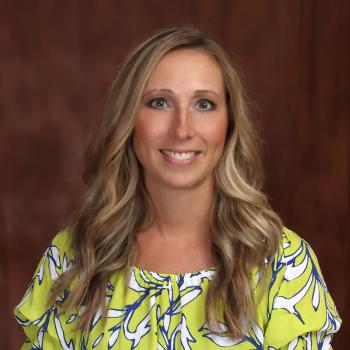When a life-limiting illness can no longer be cured or controlled, Blessing Hospice offers welcome comfort and support for your loved one—and your family.
Our dedicated, compassionate hospice team can minimize pain, fear and uncertainty and provide physical, emotional and spiritual comfort to improve quality of life. Hospice care is a way to make each day more meaningful for your loved one and your family.
Too often, hospice care isn't started soon enough. Sometimes a doctor, patient or family member is hesitant to begin hospice care because they feel they are "giving up." But hospice care actually is an opportunity to enrich the end-of-life experience and enhance dignity while being surrounded by loved ones.
Through Blessing Hospice, personalized end-of-life care, including symptom management, can take place at home, in the hospital, or in a long-term care facility.
Experience the Blessing Difference: Hospice Care
Through Blessing Hospice, our team brings your family care and compassion combined with unparalleled expertise.
- Commitment to excellence: We have been serving the community for more than three decades, longer than other hospice programs in the region. Blessing was Illinois' first Medicare-certified hospice provider. Our hospice team is recognized by the Accreditation Commission For Health Care (ACHC) for our commitment to providing quality health care and services to our patients and their families through compliance with ACHC's nationally recognized standards for accreditation.
- Additional programs: Blessing Hospice is dedicated to providing exemplary end-of-life care to the community. To meet that mission, Blessing Hospice has several programs and services available. Click here to learn more about programs we offer.
- Accessibility: Blessing Hospice and Palliative Care is a non-profit organization. Services are covered by Medicare, Medicaid and most private insurance. However, support by The Blessing Foundation allows us to provide care to patients and families regardless of their ability to pay.
Your Time: When to Seek Hospice Care
The goal of hospice care is comfort rather than cure. It allows a loved one to pass away peacefully and naturally without extraordinary interventions.
Hospice care is not just for the last few days of life. To achieve the best quality of life for your loved one, seek hospice care as soon as possible in their final journey. This compassionate step ensures your loved one can take full advantage of the physical, emotional and spiritual benefits of hospice care for as long as possible.
The earlier you start this uniquely specialized care and support, the more pain-free, comfortable days a loved one can enjoy with family and friends. Hospice care has the potential to give your loved ones and family weeks, even months, of more special moments. It's about adding life to days. Hospice care also allows a loved one to focus their time and energy on family and friends rather than spending precious time undergoing treatments or in hospitals.
Quality-of-life care and end-of-life care can go hand in hand. Your doctor may or may not be the first one to suggest hospice. Families or the loved one can seek hospice care, although the attending doctor must approve it. So how do you know when it's time for hospice care?
Signs Your Loved One is Near End-of-life
- Increased difficulty performing daily tasks, including personal care
- Reduced desire to eat with significant weight loss
- Severe pain, shortness of breath
- Feelings of hopelessness and depression, mental confusion
- Tiring easily
- Frequent ER visits or hospitalizations
- Rapid health decline over past six months despite medical treatment
- Decision to find quality of life over quantity of life
- Family struggles to care for their loved one
Who is Eligible?
A person who has a medical prognosis of six months or less to live is eligible for hospice care from Blessing Hospice. Life-limiting conditions that lead a person to hospice care may include Alzheimer's disease or dementia; heart failure; respiratory issues; or cancer.
Hospice care and extra support is typically covered by most insurance plans, including Medicare and Medicaid.
Who Is Involved In Your Hospice Team?
Our compassionate Blessing Hospice team specializes in end-of-life care and support for your loved one's physical, emotional and spiritual needs. They listen to your family's needs to create a uniquely personal experience that makes the most of every moment.
The experienced, dedicated team is devoted to the work they do in the community. Our medical director and patient care supervisor are certified in both hospice and palliative care. This certification means they have spent many hours caring for patients and have passed rigorous exams to bring the best care to your loved one and family.
The team includes a physician, nurse practitioners, social workers and chaplains. They also can connect you with valuable community resources (LINK), such as home health aides, music therapists, or massage therapists, to help in your journey.
Working with your physician, our team manages your loved one's symptoms that may include pain, nausea, anxiety, fatigue, difficulty sleeping, shortness of breath, and loss of appetite. This team of experts—just a phone call away—is available 24 hours a day, seven days a week, and 365 days a year to give support.
Care Coordination
A hospice nurse is the main link to hospice care for your loved one and family. The nurse assesses what your loved one needs and then coordinates those services. The hospice nurse care manager also:
- Educates caregivers about symptoms, pain relief techniques and how to make your loved one more comfortable
- Visits your loved one and family at least once a week
- Helps your loved one stay at home, or helps transfer to a long-term care facility
- Arranges for equipment such as a bedside commode, lift chair, oxygen concentrator, linens for a hospital bed, or incontinence supplies
- Advocates for your loved one and the family
- Communicates regularly with your loved one's doctor and can recommend medication changes when needed
Spiritual Support
Chaplains are key members of the hospice team. We can arrange for a chaplain to visit regularly. Chaplains can also visit with family members and provide counsel about how to talk to children about death and dying.
Volunteers
Hospice volunteers are an important part of the hospice team. They help meet some of the short-term, non-medical needs of hospice patients and their families. From reading to a patient, to accompanying a patient in a long-term care facility to an activity, to making phone calls to check in with patients before the weekend, hospice volunteers provide invaluable support and compassion to your loved one and family.
Additional Comfort Resources
- Music Therapy: Music therapy provides healing benefits to address the physical, cognitive, social, and emotional needs of loved ones at the end of life. The music therapist assesses each patient's strengths and needs and creates a personalized treatment plan that may include singing, moving, listening, and creating music to provide comfort and support.
- Massage Therapy: In the hands of a skilled therapist, massage can ease pain and anxiety, enhance relaxation, and promote inner peace for patients at the end of life. Massage can also help families make a connection with their loved one and bring a sense of peace as patients and families make this journey together. Massage therapy can be a powerful tool to enhance quality of life and improve an overall sense of well-being.
- Help at home: Certified home health aides can visit your loved one daily to help with tasks such as bathing, light housekeeping or changing linens.
- Caregiver College: View the video series for family caregivers.
- Health Conditions: Learn more about your loved ones health condition here
Ask your care coordinator about how to access these resources.
Contact Us
To learn more about hospice care, click here to fill out our online referral form, or call (877) 672-7610.





